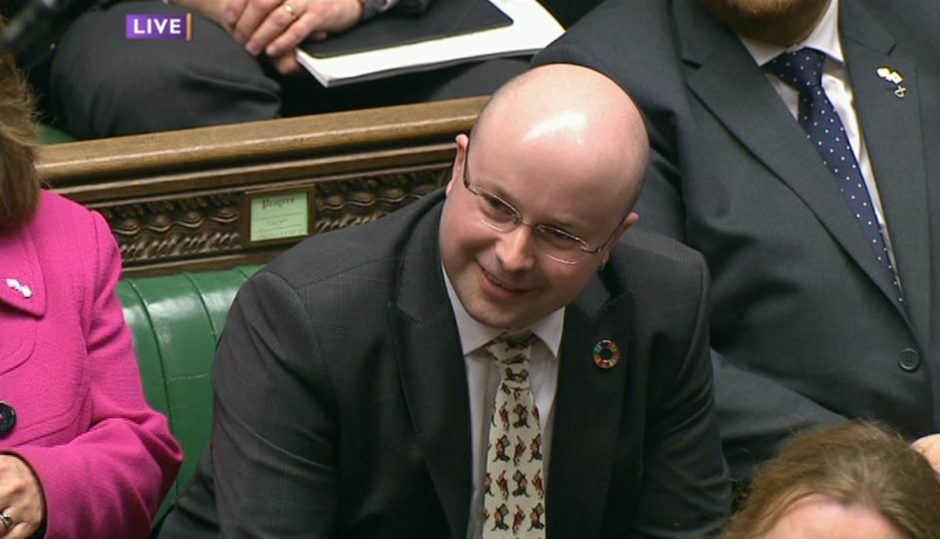
An SNP MP has called on the Government to “finally follow Scotland’s lead and rule out fracking” across the UK.
Patrick Grady (Glasgow North) argued that “if we’re going to be serious about the climate emergency then there should not be fracking anywhere in the UK”.
Minister for universities, science, research and innovation Chris Skidmore replied that in the last quarter of 2018 just 2.5% of electricity was generated by coal in comparison to 40% back in 2010.
He added that “we’re going in the right direction but we can’t forget the fact that we will be using gas in Scotland”.
Raising the fracking issue during Commons Business, Energy and Industrial Strategy (BEIS) questions, Mr Grady said: “There is no fracking in Scotland, there has been no fracking in Scotland and under the SNP there will be no fracking in Scotland, and if we’re going to be serious about the climate emergency then there should not be fracking anywhere in the UK.
“So, will the UK finally follow Scotland’s lead and rule out fracking on these islands?”
Mr Skidmore replied that “we obviously want to ensure that we can increase our opportunities for generating electricity through renewables”, adding that 85% of UK households were using gas for heating.
He said: “We had 47% of gas being imported in 2017, if we don’t take action this could rise to 72%.”
Labour’s Geraint Davies (Swansea West) said Nasa and satellite data showed that 5% of the methane from fracking was leaked through fugitive emissions.
He said: “The methane is 85 times worse than C02 for global warming, making fracking worse than coal for climate change, so will he meet with me to discuss my fracking bill?
Mr Skidmore said a 2013 report concluded that the carbon footprint of UK shale gas would be much less than coal and comparable to imported liquified natural gas.
Measures, he said, were in place to minimise methane emissions, adding that the Environment Agency “issues and robustly enforces legally binding environmental permits regulating methane emissions”.
Labour chair of the BEIS committee Rachel Reeves called on the Government to end its “ideological opposition” to onshore wind.
She said: “The climate change committee say that we need to double our production of onshore wind in the next decade. Instead, it’s likely to halve because of this Government’s ideological opposition to it.
“We’re not on target to meet our fourth and fifth carbon budgets, let alone achieve net zero, so will the Government end its ideological opposition to onshore wind so that we can hand on to future generations a better planet?
Mr Skidmore said communities should be able to “reflect on the benefits” of renewable energy in their communities, rather than call them ideological opponents to renewables, adding: “I don’t think that’s very fair on those communities.”
